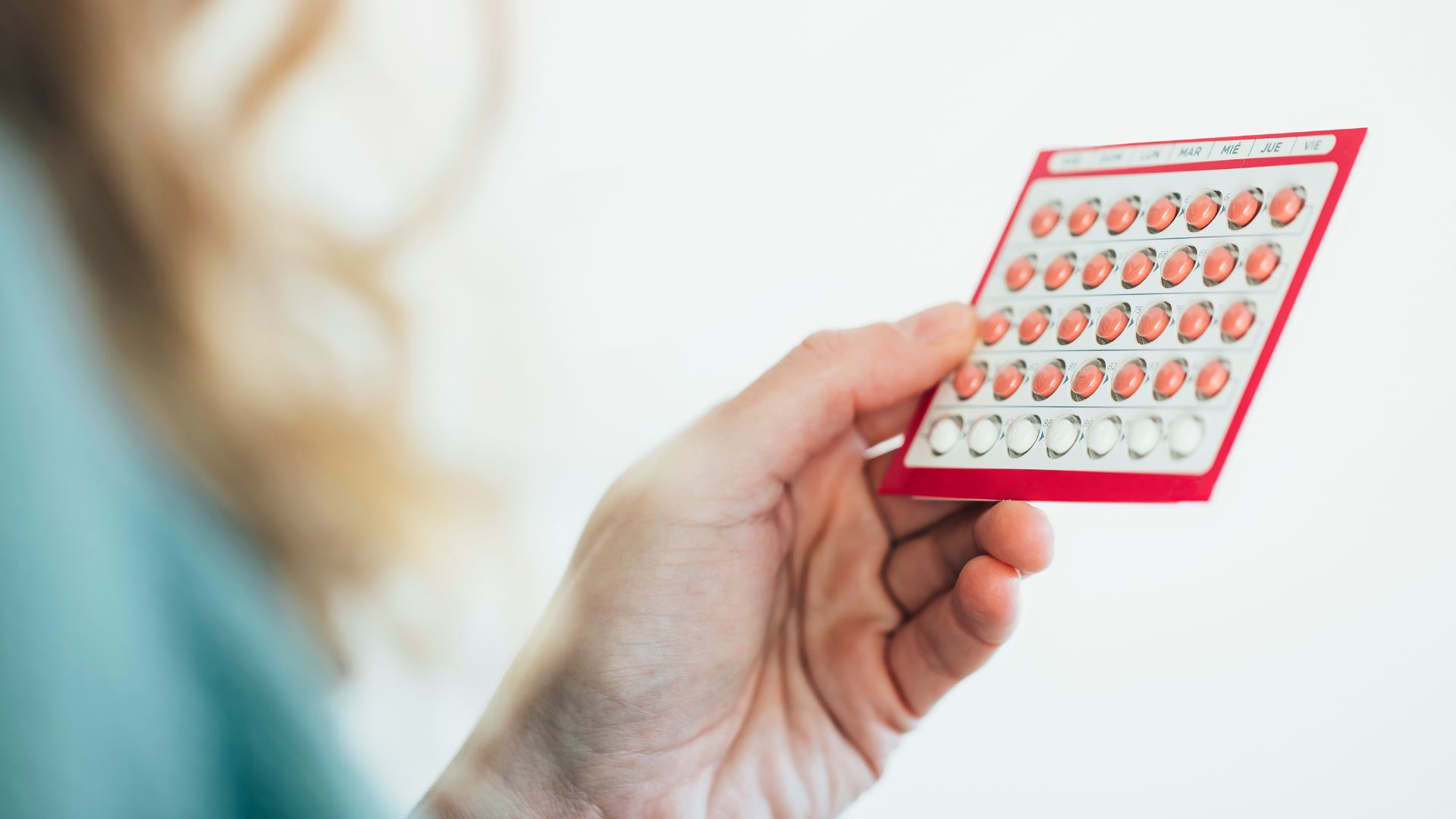Hormonal birth control slightly increases breast cancer risk, regardless of type
Hormonal contraceptives slightly raise users' risk of breast cancer, regardless of whether they're combination or progestogen-only.

Most, if not all, forms of hormonal birth control, from pills to implants to intrauterine devices (IUDs), increase the risk of developing breast cancer, a new study suggests.
It was known that combination birth control, which contains both progestogen and estrogen, comes with a slight increase in breast cancer risk. In the past decade, though, forms of birth control containing only progestogen have become more popular.
In a study published Tuesday (March 21) in the journal PLOS Medicine, researchers show that taking progestogen-only birth control comes with a 20% to 30% increase in breast cancer risk, which is similar to its combination counterpart. The baseline risk of developing breast cancer is low, especially among young people, so this represents a relatively small increase in overall risk.
The new data can help people make more informed decisions about whether to take hormonal birth control, considering both its risks and benefits, which include protecting against other forms of cancer, including ovarian cancers.
Related: Will there ever be a universal test to detect cancer?
"We know that current use of combined oral contraceptives is associated with a small, transient increase in breast cancer risk that declines after stopping use," Kirsten Pirie, a statistical programmer with the Nuffield Department of Population Health's Cancer Epidemiology Unit at the University of Oxford and coauthor of the study, wrote in an email to Live Science. "However, less is known about progestogen-only contraceptive use."
The researchers looked at data from the Clinical Practice Research Datalink, a database made up of healthcare information from the U.K. National Health Service. They examined a group of about 9,500 women under age 50 who were diagnosed with breast cancer between 1996 and 2017, as well as 18,000 women under age 50 who were not diagnosed with the disease.
Get the world’s most fascinating discoveries delivered straight to your inbox.
About 44% of those with breast cancer and 39% of the healthy controls had a current or recent hormonal contraceptive prescription, and about half of the birth control was progestogen-only. The risk of being diagnosed with breast cancer increased about 25% for women on birth control, regardless of whether it was combined or progestogen-only. This risk was consistent across four types of birth control — pills, implants, injections and IUDs — and didn't change due to factors like age, body mass index or number of births.
The researchers also analyzed previous studies that examined breast cancer risk among women taking different types of progestogen-only birth control. That data was consistent with the new data they collected, as well as data from studies on breast cancer risk in people taking combination hormonal birth control. (These previous studies didn't all control for the same factors that might influence their results, such as age at first birth, but in general these factors "appeared to have little impact on the results," the authors wrote.)
The researchers estimated the 15-year "excess risk" of being diagnosed with breast cancer if you've used either combination or progestogen-only birth control — this estimate covers five years of contraceptive use followed by 10 years off contraceptives. It amounted to about 8 of 100,000 users aged 16 to 20, 61 of 100,000 users aged 25 to 29, and 265 of 100,000 users aged 35 to 39, who have a higher baseline risk of breast cancer than younger people.
Given that combination hormonal birth control has long been used despite this same association, the findings will likely not have a major impact on whether people choose to take progestogen-only birth control, the authors said at a press conference on March 20.
They also noted that hormonal birth control is associated with protection against endometrial and ovarian cancers, which unlike the increased breast cancer risk, doesn't go away after birth control is stopped. (This is a well-established benefit of combination contraceptives, but the link is less clear for progestogen-only options.)
"That protection against endometrial cancer and ovarian cancer actually persists into middle age," Gillian Reeves, Director of the Cancer Epidemiology Unit at the University of Oxford and coauthor of the study, said during the press conference.
The study included a small number of people who had copper IUDs, which do not contain hormones, but the researchers said they didn't have enough data to determine if this form of birth control is associated with breast cancer risk or not.

Rebecca Sohn is a freelance science writer. She writes about a variety of science, health and environmental topics, and is particularly interested in how science impacts people's lives. She has been an intern at CalMatters and STAT, as well as a science fellow at Mashable. Rebecca, a native of the Boston area, studied English literature and minored in music at Skidmore College in Upstate New York and later studied science journalism at New York University.
 Live Science Plus
Live Science Plus





